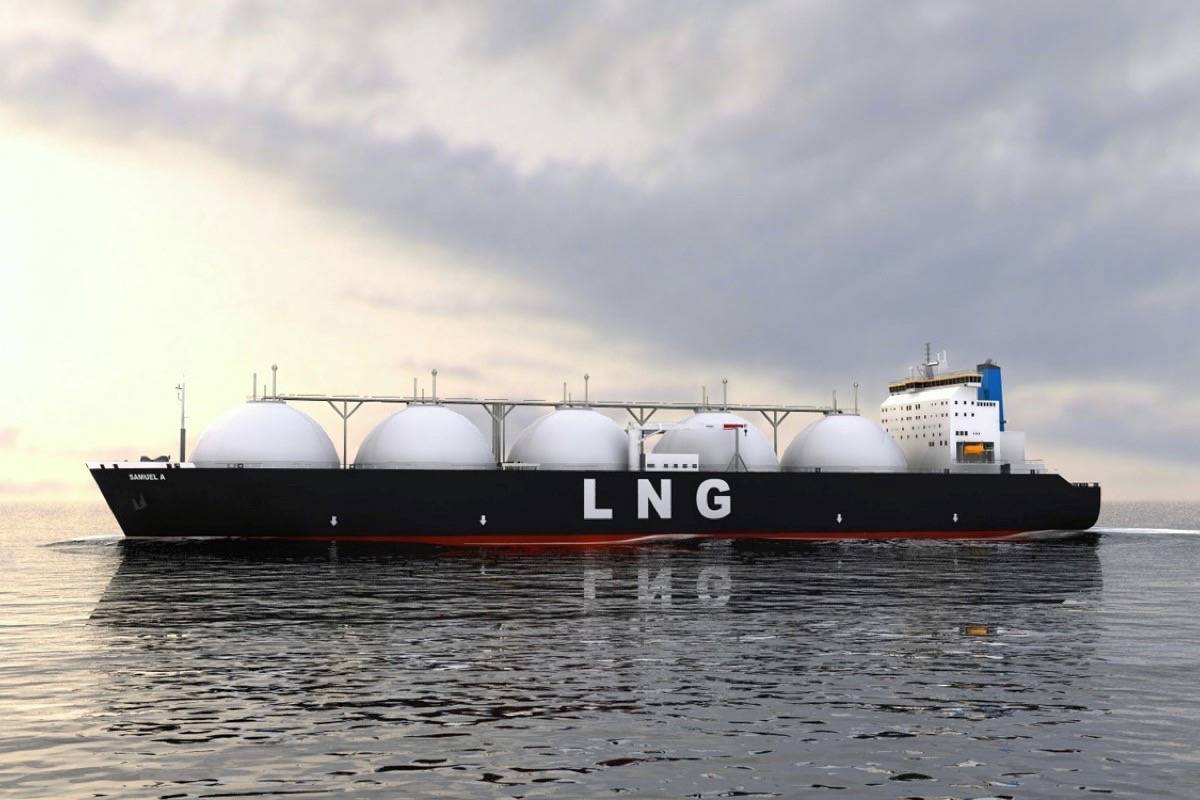The trade volume between Qatar and South Korea exceeded $10 billion in the year 2021.
South Korea’s shipbuilders have started to receive the first construction orders as part of a major deal with QatarEnergy, which could potentially see more than 100 liquified natural gas (LNG) carriers built by 2027.
Daewoo Shipbuilding & Marine Engineering (DSME) secured a place as the first shipbuilder to win orders for Qatar’s LNG carrier which is in line with its expansion project.
On Tuesday, DSME announced that it has landed orders for four LNG ships with a cargo capacity of 174,000 cubic meters from a Korean consortium consisting of H-Line Shipping, Pan Ocean and SK Shipping, according to reports.
The machinery will be geared with a “low-pressure dual-fuel propulsion engine and re-liquefaction facility,” which according to DSME, is set to provide an eco-friendly carrier that can drastically minimise air pollutant emissions.
The total contract value, reportedly, amounted to $857.9 million, with each ship priced at $214.47 million.
These carriers will be built at Okpo Shipyard in Korea and delivered to the Gulf client by the first quarter of 2025. They will be used for QatarEnergy’s North Field expansion project.
Under QatarEnergy, Doha is moving towards dominating the global production of LNG through its mega North Field Expansion project, the biggest in the world.
The multi-billion plan seeks to boost Qatar’s annual LNG production capacity from 77 million metric tonnes to 126 million tonnes by 2027, the Amir Sheikh Tamim bin Hamad Al Thani announced, during the Gas Exporting Countries Forum Summit in February.
DSME reported receiving the first order under the “advance reservation agreement” reached with the Gulf country for Korea’s big three shipbuilders to build more than 100 LNG ships in June 2020, while revealing that extra orders are expected to be awarded to other Korean shipbuilders in the future, reports said.
The total cost of the huge shipbuilding project is estimated at US$19 billion.
Korean media reports say QatarEnergy allegedly placed an order with Hyundai Heavy Industries, “both of which would be a follow-on to an order with Chinese shipbuilders in April for additional LNG carriers.”
In June 2020, Qatar announced what it called the world’s largest shipbuilding order saying it had reserved a significant portion of the LNG shipbuilding capacity.
Qatar’s shipbuilding deals
DSME and Doha’s contracts date back to the early 2000s, with the Korea-based shipbuilder receiving orders for 26 LNG ships, or nearly half of the total 53 ships, in a Qatar LNG carrier project between the years 2004 and 2007.
Separately, South Korea’s Yonhap is also linking a new order reported by Korea Shipbuilding & Offshore Engineering Co., the parent of Hyundai’s shipbuilding operation, also to QatarEnergy, with a contract standing at approximately $430 million to build two 174,000-cubic-meter LNG carriers, it disclosed in a regulatory filing, reports said.
The filing suggested that the ships will be delivered to an undisclosed “European shipping company” in the first half of 2025, reports confirmed.
Qatar and South Korea’s LNG relations
Qatar has long been a major supplier of LNG to Seoul as part of long-term contracts between the two countries.
Qatar and South Korea’s overall bilateral trade reached $5 billion in the first half of 2021 alone, representing a 29% increase in comparison to 2020.
The energy sector is responsible for a large portion of trade ties between the two nations, with South Korea importing an estimated 38 mtpa (million tonnes per annum) of LNG from both Qatar and Australia.
In 2021, Doha’s LNG shipments to Seoul reached almost 10 mtpa, accounting for at least 30% of the country’s energy demands, rendering the Gulf state as South Korea’s largest LNG supplier.
More recently, data from January 2022 showed that South Korea came third place among Qatar’s Asian LNG buyers. The country had attained around 661,000 tonnes worth of LNG from the Gulf Arab state, as India came first with 1.2 million tonnes, followed by China at an estimate of one million tonnes.
In July 2021, Korean Gas Corporation (KOGAS), Seoul’s state-run company, inked a 20-year agreement with QatarEnergy, at the time known as Qatar Petroleum.
Under the agreement, KOGAS is set to purchase an additional two million tonnes of LNG per annum as of 2025, bumping the shipments to a total of 6.1 million. The deal came as the previous contract, worth 4.9 million tonnes, was coming to an end by 2024.
The deals are not limited to LNG, as QatarEnergy also signed an agreement with South Korea’s Hydrogen Convergence Alliance last year. Both Doha and Seoul aim to develop hydrogen as a source of energy, as the Gulf state explores other methods of low-carbon energy solutions.







